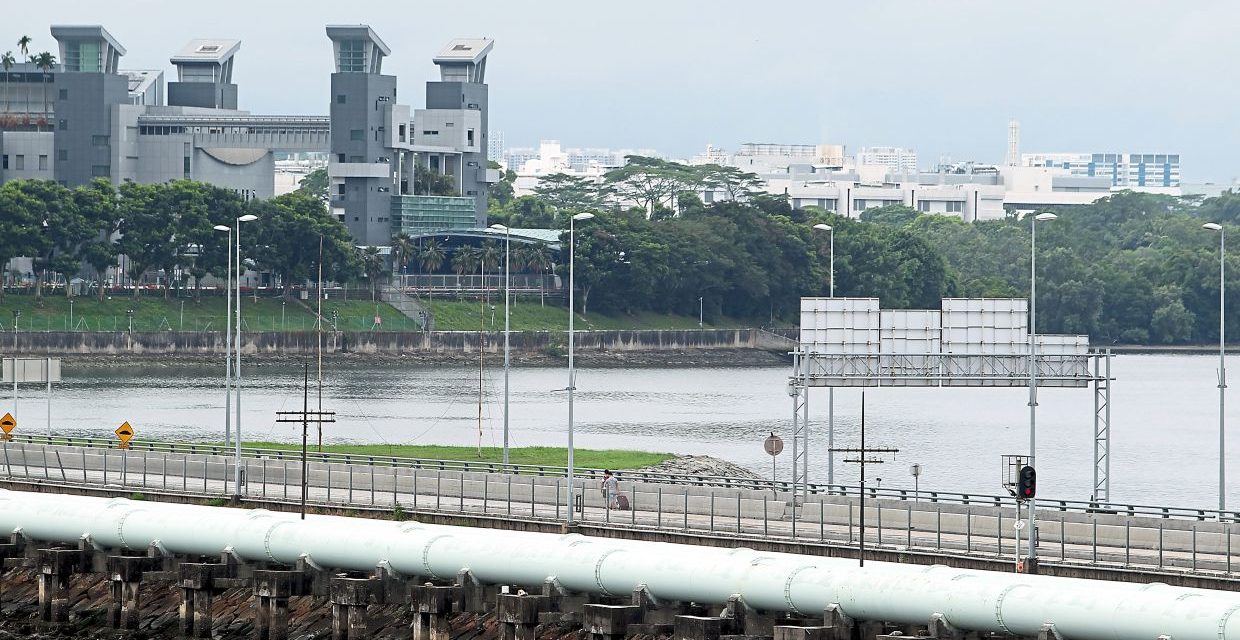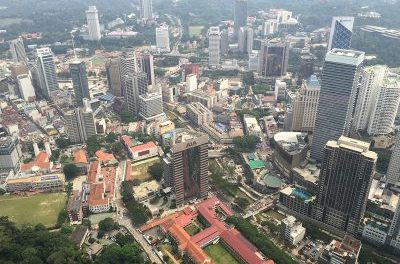Malaysia-Singapore border to reopen under RGL, PCA schemes
Malaysia and Singapore have agreed to implement Reciprocal Green Lane (RGL) and Periodic Commuting Arrangement (PCA) travel, allowing citizens from either side of the Johor Strait to cross the border for work or official purposes, beginning Aug 10. Foreign Affairs Minister Datuk Seri Hishammuddin Hussein and his Singaporean counterpart Dr Vivian Balakrishnan said the two schemes are meant to address the needs of different groups of cross-border travellers in both countries. The RGL scheme will enable cross-border travels for essential business and official purposes between both countries. The PCA scheme would allow Singapore and Malaysia residents, who hold long-term immigration passes for business and work purposes in the other country, to enter that country for work. On the date to roll out the RGL and PCA schemes, the two ministers said officials of both countries are “working expeditiously” towards the targeted implementation date in August. (NST Online)
Pandemic puts downward pressure on office rents and occupancy
Knight Frank Malaysia expects the Covid-19 pandemic to exert downward pressure on rental and occupancy levels in the oversupplied Klang Valley office market as the gap between supply and demand continues to widen amid weaker office demand and shrinking pool of tenants, it said in its latest Real Estate Highlights for 1H2020. However, it added that the recent cut in Overnight Policy Rate (OPR) to 1.75% in July 2020 is expected to have a positive impact to support property yields, releasing the upward pressure. For the office markets in KL Fringe and Selangor, average achievable rental rates in 1H2020 held steady, supported by active leasing activities and positive tenant movements. Moving forward, the report said working from home may be the new normal for some while social distancing measures may lead to a reversal of open office trend. Additionally, Knight Frank Malaysia anticipates an increased demand for smaller, flexible office spaces. (The Edge)
PPR rent-to-own scheme not well managed
The People’s Housing Project (PPR) rent-to-own (RTO) scheme has not been well managed, with delays in the handover of completed projects spanning between 23 and 866 days. According to the Auditor-General’s Report 2018 (Series 3), the delay in handing over the RTO projects to the National Housing Department (NHD) was due to contractor weaknesses and lack of standard operating procedure (SOP). The RTO scheme was introduced in 2016 to help those earning below RM3,000 own the PPR unit that they were living in after paying monthly rent for a set period of time. Until December 2018, eight PPR RTO projects involving 5,623 units had been carried out at a cost of RM794.24mil. As many as seven projects took between one and 40 months to be occupied and 1,880 units or 33.4% were unoccupied. The audit also found that PPR tenants were dissatisfied with their units and facilities, especially in areas involving building quality, the process of filing damage complaints, and repairs on defects reported. The appointment of contractors and the administration of the contract were also found to be out of order while the work quality and maintenance were not done well. (The Star Online)
Malaysia’s opposition gearing up for snap polls
Malaysia’s opposition is preparing for early elections after a crucial vote in the lower house this week showed Prime Minister Muhyiddin Yassin may lack a parliamentary majority, said Mohd Shafie Apdal, a potential rival for the premiership. Muhyiddin on Monday succeeded in his bid to replace the speaker of parliament’s lower house by a margin of two votes. But he fell one vote short of a simple majority with only half of the 222 lawmakers in the house voting for his motion. “Elections are not far away, it’s just around the corner,” said Shafie, anticipating Malaysia would hold a national election well before it falls due in 2023. He said the tabling and parliamentary vote on the 2021 budget in November would be another crucial test for the government. (The Sun Daily)
AmBank rated best bank in Malaysia and one of the world’s top 100 banks
AmBank has been ranked as the best bank in Malaysia in a global ranking of 1000 of the world’s quoted banks, according to a new banking magazine launched by the London-based Lafferty Group. In its inaugural issue of The Statement, Lafferty Group’s banking magazine released today, AmBank is also ranked as one of the top 100 banks in the world and scored particularly highly for financial inclusion. Lafferty said Malaysian banks are on average rated higher than those of Australia, the UK and the US, but slightly lagging behind Indonesia. The research is generated from the Lafferty 1000 global banking database, which scores the one thousand banks for quality across 21 metrics and rates them from 1-star (weakest) to 5-stars (best). Only 5 of the 1000 banks receive 5-star ratings and all are based in emerging markets. Italy’s UniCredit comes bottom of the group, with a 1-star rating. (The Edge)





